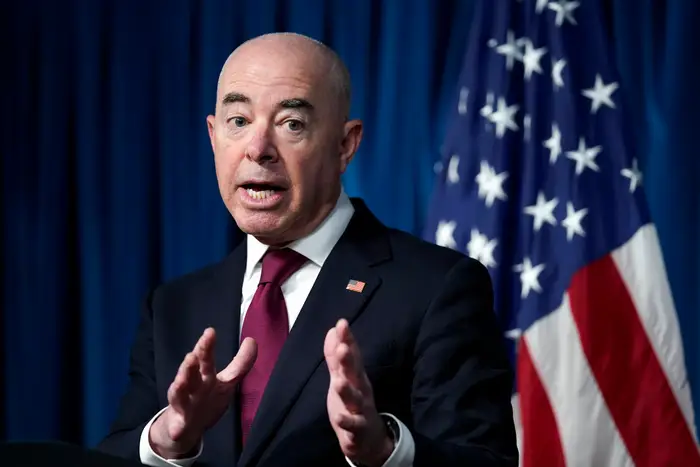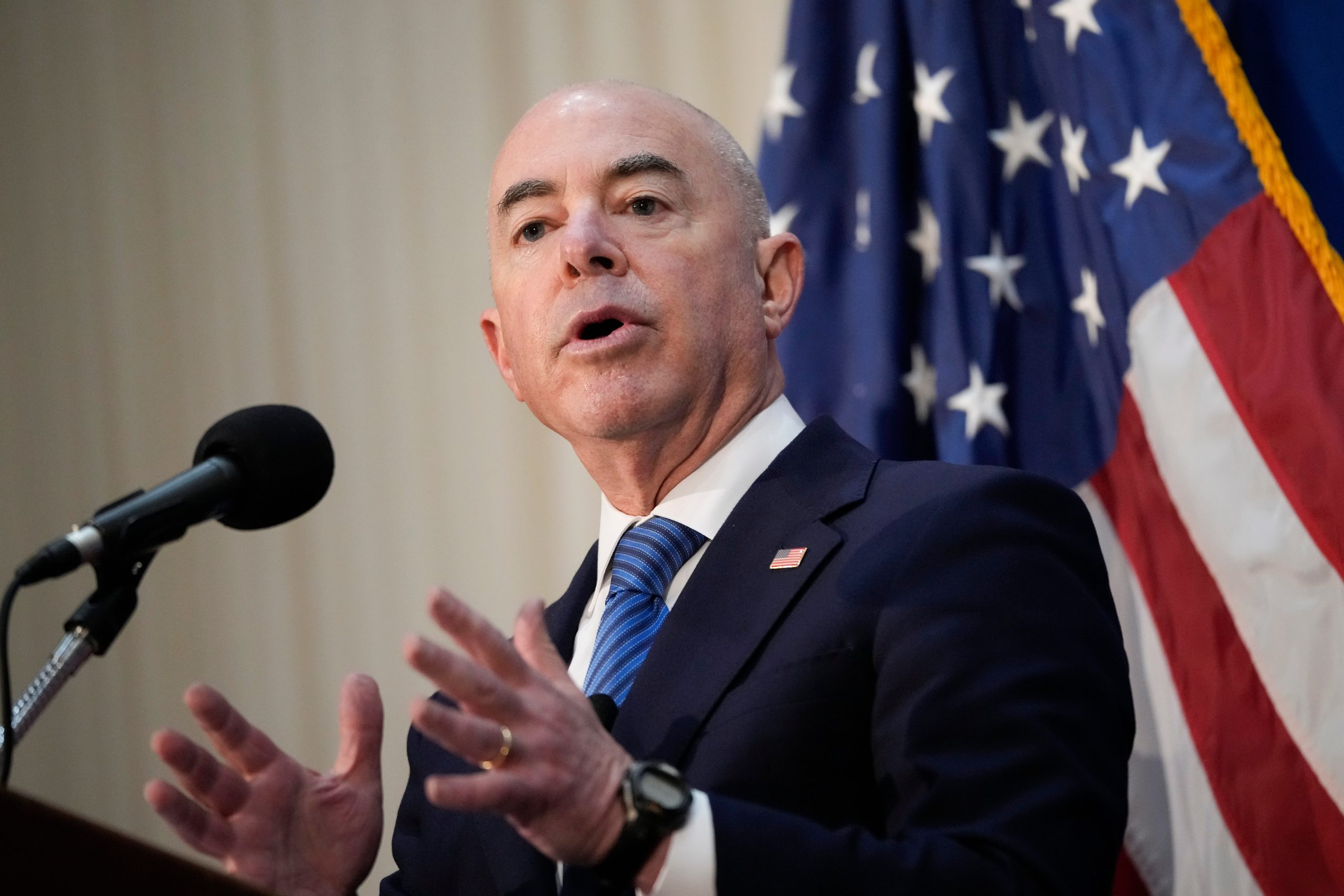Facing the prospect of a second impeachment vote this week, Secretary of Homeland Security Alejandro Mayorkas vehemently refuted the accusations leveled against him by the GOP, asserting that only Congress holds the power to address what he termed a “crisis” on the U.S.-Mexico border.
In a recent interview with NBC’s Kristen Welker, Mayorkas dismissed the allegations against him as “baseless,” expressing his lack of distraction by them. The impeachment articles accuse him of deliberately disregarding immigration laws, a claim he vehemently denies.
Last Tuesday, House Republicans attempted to impeach Mayorkas but fell short by a single vote, with 216 voting for impeachment and 214 against. This outcome was seen as an embarrassment for House Speaker Mike Johnson, who acknowledged the setback and pledged to reintroduce the articles for another vote.

Alejandro Mayorkas, Homeland Secretary, Dismisses Allegations as “Baseless” Before Anticipated Second Impeachment Vote on Tuesday (Credits: Business Insider)
With the return of Louisiana Representative and Majority Leader Steve Scalise, who missed the previous vote due to cancer treatment, Republicans are hopeful of securing the necessary votes this time. However, the outcome of Tuesday’s special election in New York to replace former Representative George Santos could further complicate matters for House Republicans, given their slim majority.
Despite the looming threat of impeachment, Mayorkas expressed confidence on Sunday, emphasizing that his primary concern lies in addressing the ongoing border situation. He echoed President Biden’s characterization of the situation as a crisis, underscoring the need for Congressional action to address the underlying issues.
Mayorkas pointed to the recent Senate deadlock over a bipartisan border bill, which was supported by President Biden but ultimately rejected by the majority of GOP Senators. He lamented Congress’s failure to act on bipartisan solutions, despite the efforts of lawmakers to provide necessary tools and resources.
In light of these developments, Mayorkas emphasized the crucial role of Congress in resolving the challenges at the border, reiterating that it is ultimately up to lawmakers to enact meaningful reforms.























